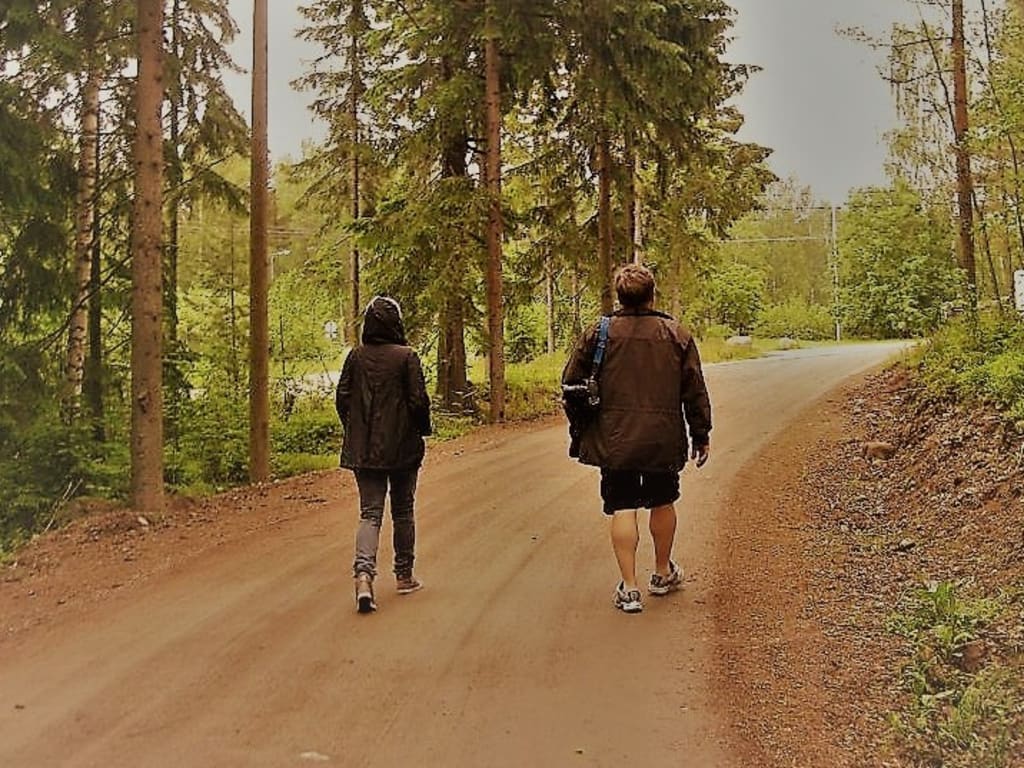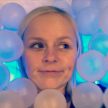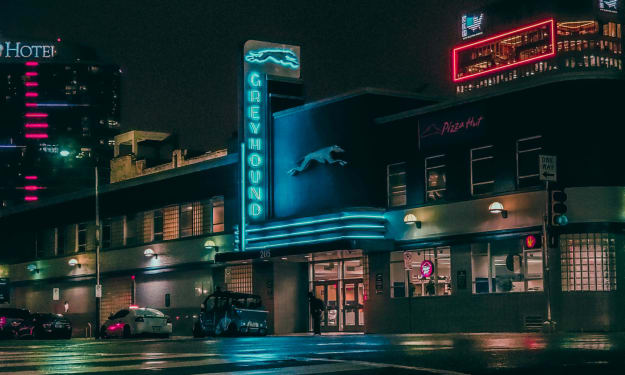I Never Knew My Father Was an Alcoholic
After my father’s passing, I’ve been forced to confront his trauma — and my own.

My parents got divorced when I was 6. I never felt traumatized by it, only by the teachers and other understanding adults who tried to offer my broken family as an explanation to my behavioral problems.
I thought my family was far from broken. I’ve always been close with my mother and two sisters, and when I was growing up I saw my father as a temperamental but lovable character.
He was very emotional, almost like a child sometimes. He would cry when talking about his love for my mother, and get angry fits when something minuscule didn’t go his way. Far from jaded or wary of the world, in his good moments he was a hugger, a person full of love who liked to show it to people.
But he was a tough person to be around. If my sisters and I didn’t answer the phone, he would keep calling everyone else in the family until he was able to tell at least one of us what lousy children we were. He would forget about his anger five minutes later, and we would never take it seriously.
I would never have called him abusive, though my mom might not agree. Maybe he was, maybe he was only abusive with himself.
He used to make a lot of dad jokes. He was a fun, charismatic person, the life of the party. But he was also obsessed with the social status of the people around him, as if surrounding himself with those with money or power made him better.
“My father is a difficult person,” I always thought, and most people who knew him would have agreed. But I loved him, and as long as I could not live in the same house with him I had no problem with our relationship.
---
He died over four years ago, of a cancer that started out in the kidneys and spread its way across his lungs and the rest of his body. It was a five-year process that turned him from a big, bearlike man in his mid-fifties into a frail, eighty-year-old-looking man with stick-like limbs and fine white hair. I can’t even look at pictures from those last days of his, they are so different from the person I knew.
The picture above is of the two of us on the day he told me about the cancer. He didn’t mean to, it slipped out after one too many Jim Beams. He was disappointed in his life, said nothing had been worth it. I got angry. I didn’t understand him then.
It was only when he died that I started grasping the depth of his pain, and my own. I started seeing things I had always kept hidden, even from myself.
Little by little, I started remembering things.
I started remembering how, when I was only seven or eight years old, he would sometimes leave me and my sisters alone in his apartment while going out for a couple of beers. I never minded, hardly even recognized it because of how consumed I was with reading my books.
I started remembering how he always had a glass of something colorful at hand, even when he was home, in bed or watching TV. As a teenager, I still thought it was juice.
I started remembering the last times he came to visit me and my ex-boyfriend in Spain and Argentina. We would find empty bottles of hard liquor hidden all around the house after he’d left. I thought it was just vacation drinking, something he surely would not do at home.
I made excuses, like so many relatives of people with addictions.
And I started remembering my life before my parents’ divorce. I remember a dark, old house, and I remember him shouting, and I remember hiding behind my parents’ bed.
I recall Mom and Dad never really sharing the same space. While my mother was taking care of us, my father would lock himself up in the basement, where he’d built himself a man cave. I didn’t realize he was drinking.
But even more disturbingly, I had never counted on his presence.
The last two times I saw him were the ones that started opening my eyes and made me understand his problem. He only had a couple of months left to live then, and I had traveled to Finland specifically to spend time with him. My last visit to the apartment he shared with his long-term partner was cut short, as he was too drunk to stay awake.
“It’s the medicine, it makes my head dizzy,” he said as he stumbled across the living room, but he had a half-empty bottle of wine in his hand.
“You should go talk to somebody,” I told him. But it was an impossible concept for a man of his generation. Even worse when I told him he should go to Alcoholics Anonymous, thinking it could help a terminally ill man who had always been in denial about his addiction. The understanding of his disease was too fresh for me to deal with in a way that would have had a chance of being productive.
And the last time I saw him, I was annoyed. He had to leave early because he was, again, too drunk to remain on his feet, and I had a plane to catch the very next day, to the other end of the world.
I gave him an awkward hug and hated him, at that moment, for not being able to put the effort into what was surely going to be the last time we would ever see each other. That's what addiction does; it replaces love with hate, destroys everything.
But I wasn’t able to put in the effort, either, to give him something more meaningful than my anger, even knowing I would never see my father again. I didn’t understand he was probably aware of how terminal the situation was, and that was what made it even harder for him to be sober at that moment. I wasn’t able to see past his addiction and his pain at that time.
We talked a couple of times after that on the phone, but it was hard to make sense of his words after cancer took hold of his brain.
Sometimes I explain his behavior as something caused by the cancer, rationalizing it to fit the image I had always had of him. “He was so traumatized after his diagnosis, that’s why he started drinking.” My mother, who never said a bad word about my father while he lived, now gently nudges me in the right direction whenever I make those excuses.
“He was always an alcoholic, you just didn’t know it.”
---
Where I come from, mine is a common wound. Growing up, I had seen someone seriously alcoholic from up close; one of my best friends had a parent with substance abuse issues. But whereas my friend’s father would stumble home from work under the influence on a daily basis, my father was always sober in my eyes.
In Finland alcoholism is so common it’s almost more normal to have a parent who struggles with addiction than not. We carry it in our history and society, our bodies, our epigenetic markers, and it’s hard to escape from it. Both of my grandfathers were alcoholics. And my father’s grandparents were, as well.
And not only that, but after my father’s death I learned he also carried abandonment in his family, almost as a hereditary trait. Left on his own by his mother and his father, who in turn had been abandoned by his parents. Then his brother left the country and never returned, my mom left dad, and his best friend committed suicide — another common phenomenon in early ’90s Finland, a society going through a major economic downturn. It was a cocktail of decades of abandonment on top of abandonment.
I understand now that he was always angry, alone, and had never heard of the kind of emotional coping mechanisms we can now all learn with the help of a professional. If he had been born in another time, maybe his teachers would have paid more attention to his problems, like mine did (albeit in all the wrong ways). Maybe he could have learned to open up and experience another way of dealing with hard emotions, except for the only one he inherited from his society.
I am in many ways the spitting image of my father.
I often say I’m only one bad boyfriend away from becoming an alcoholic myself, and it’s only half in jest. I know I struggle with many of his problems: inability to control my emotions, addictive behaviors, money troubles.
And maybe my problems are in part a result of his addiction and his trauma. Maybe abandonment carries on, from one generation to the next. Maybe I would have experienced emotional imbalances in my life, no matter how normal I tried to make it. Maybe him never being present in my early childhood did leave its imprint on my psyche.
But I am also a woman, and it’s easier for me to talk about my issues, even to strangers. I’m not subject to the same kind of scrutiny and even mocking that men of his generation were and young men still are, which in his day often led to the only possible solutions being alcohol or suicide.
And I’m well enough informed to know what I need to do in order to be safe: control my drinking or limit it as much as I can, never touch drugs, stay in touch with my creativity to examine my emotions and get them out of my head, and stay physically active and healthy to keep my happiness hormones and brain functions in check.
---
It’s been four years but my grieving process is not over, and I’m not sure it will ever be. But this story is a part of it.
I carry no grudges against him, and I am not angry. I am sad.
He had so much love, and he could have been the best, funniest, most charming person in the world had he been able to deal with his issues. I’m sorry that he didn’t have the possibility to go through his feelings in the way I am, and I’m sorry he always felt a weight on his shoulders, that he was never free.
But I know I want to be.
I did have good last words with him, void of any annoyment or anger. “I love you so much,” I said, at the end of one of his very last lucid conversations. It was his 60th birthday, a month before he died, and I was on the other side of the world.
“I know you do,” he answered.
---
This story was originally published by me, on Medium, and has been slightly edited.
About the Creator
Taru Anniina Liikanen
Finnish by birth, porteña at heart. Recovering political ghostwriter. Fiction, relationships, politics, bad puns, popular and unpopular opinions. Occasional dinosaurs, because dinosaurs are the best.






Comments (1)
A heartfelt read, thank you for sharing this with us all. I wish you peace and for him also. <3